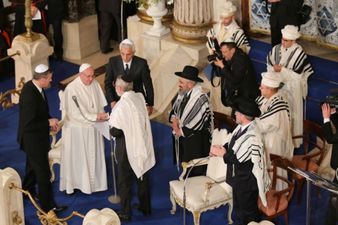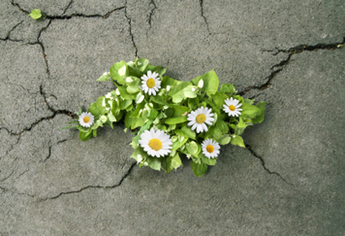
Professor Mukesh Kapila had been head of the United Nations in Sudan when he blew the whistle on the atrocities of Darfur. At what he called a master class he drew us into the situation in Darfur and got us imagining what we would have done in his position. It certainly got us involved and made me more receptive to the story he told. What was most shocking was the fact that governments knew of the atrocities being perpetrated in Sudan through their intelligence services. Professor Kapila thought he was alerting the United Nations and several government departments to a situation, known to him because he was on the ground, but they already knew and were doing nothing. Oh, they offered excuses - let's sort out this problem first, let's be careful not to make the situation worse, let's wait and see how things work out. Officials hid behind their positions, took no responsibility for what was happening and were never called to account for their action or non-action. And Darfur is still suffering but how often do we hear about it now? Mukesh got us imagining ourselves as head of the UN, sitting in a very large office at the top of a high sky scraper looking down on the world below - how do people look from that height? Well, the obvious answer: ants, And looking on people as insects or cockroaches, as was the case in Rwanda, hardens the heart. The problem with politicians Makesh suggested, is that they think they are in control, they are arrogant enough to think they have the answer, they are far removed from the human suffering and are hesitant to challenge the state that is sponsoring the violence for all genocides are state sponsored. Of course state sponsored violence wouldn't succeed if ordinary people didn't participate, if they weren't caught up in the propaganda that turned former neighbours into enemies or saw them as less than human. Mukesh stressed that while genocides are orchestrated by government, decisions are made by individuals and atrocities carried out by individuals who ought to be called to account but their involvement is hidden in secret papers and so they are never exposed - and sometimes even awarded Nobel peace prizes!
Our second visitor wad Dr Inge Auerbacher. Inge is a holocaust survivor. She spent three years, from the age of 7 to 10, in Terezin (Theresienstadt) concentration camp in Czechoslovakia and was among the few children who survived. She relived her memories of kristallnacht when all the windows in her home were broken and all the men in the village she lived in were arrested and taken to Dachau. They were released a few weeks later as this was simply a warning as to what could happen to Jews. Later, however, she and her parents were transported to Terezin where everything was taken from them though Inge managed to keep her doll, Marlene, that was a source of comfort to her and is still in her possession. Perhaps the most moving account of Inge's story took place at Polmont Young Offenders Institute. About a hundred of us were privileged to be there and see the work that some of the young men had done on the holocaust. When Inge spoke to them she said that someone had asked her if she had ever been in a prison before - well she had and she told them she knew how difficult it is to lose one's freedom and understood something of what they were going through. She told them how important it was never to give up - never give up hope she told them. What was most moving was at the end of the evening she spread out her arms in welcome and every one of the young men embraced her before returning to their cells or whatever they call the rooms they live in. I will never forget it and I doubt if any of them will either.
I was privileged to have dinner with Inge. She spoke of her friend Sr Rose Thering, a Dominican sister, who is well known for the work she did on catholic catechetical material showing up its anti-Jewish sentiments. Her work was influential in the drawing up of Nostra Aetate, the document from the Second Vatican Council that opened the Catholic Church up to interreligious dialogue and changed its relationship with the Jewish community. I knew of Sr Rose's work and somehow just knowing this connected Inge and myself. We also spoke of forgiveness, something Inge found difficult. She didn't think it was right to forgive mass murderers and only those who had suffered directly could forgive a perpetrator. In the final analysis she believes forgiveness lies with God and even Jesus on the cross didn't forgive those who crucified him - rather he prayed that God would forgive them. Nelson Mandela believed that not to forgive his captors was to continue to live in prison. Inge is certainly not living in prison and much of her life has been giving voice to all the children who died in the Holocaust. While struggling with the concept of forgiveness Inge did not believe in blaming the children for the sins of their fathers and was totally committed to reconciliation, something her whole life bears witness to. Perhaps reconciliation bears within it the seeds of forgiveness and forgiveness without reconciliation would be meaningless. These are difficult subjects but hopefully Holocaust Memorial Day keeps alive in us the need to treat others well, to remember our common humanity and that the work of reconciliation is necessary in this world of ours torn apart by war and division.





 RSS Feed
RSS Feed
